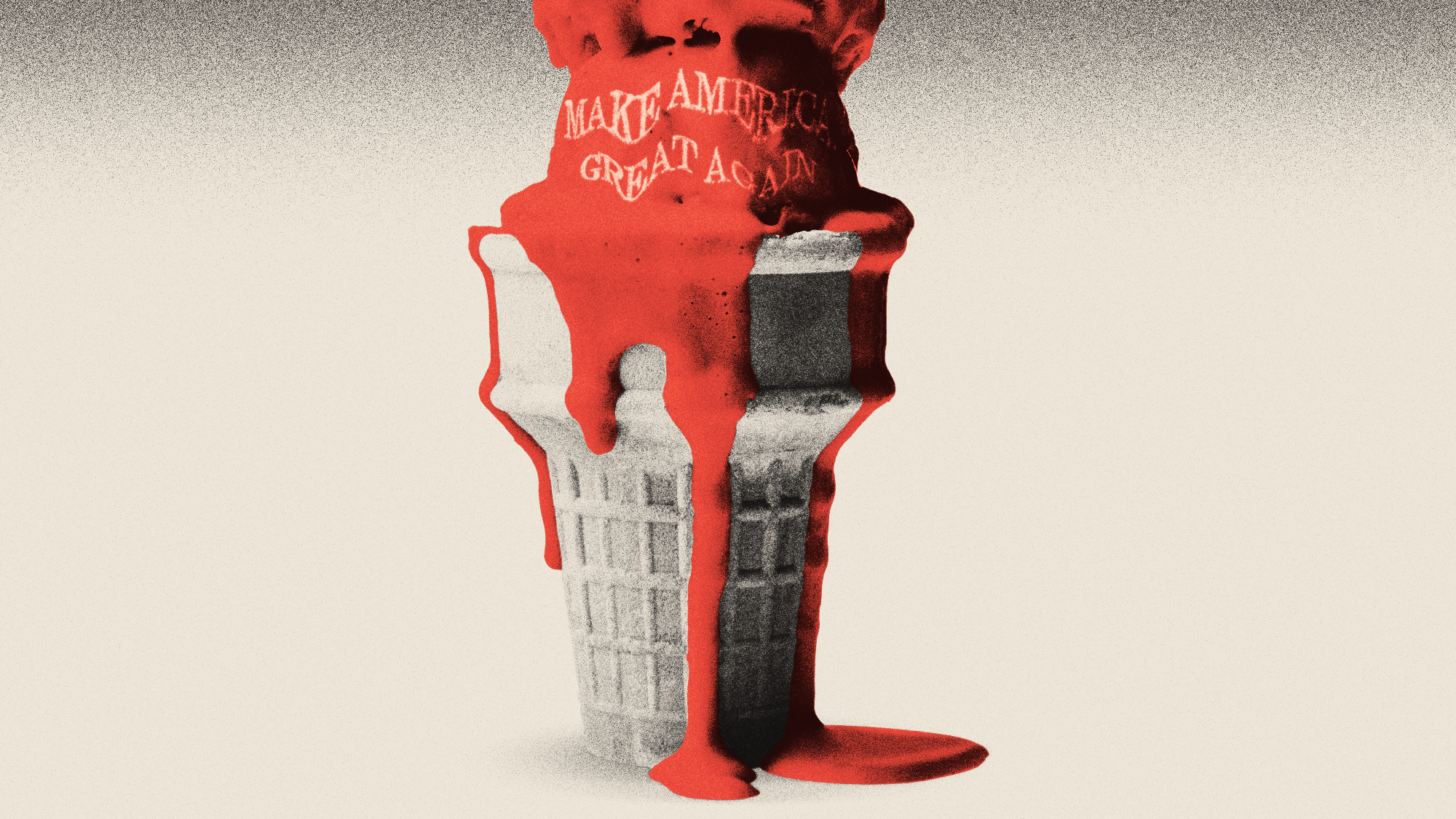The King's Speech
In this edition of The Week's Editor's Letter, Francis Wilkinson details why oratory matters
In The King’s Speech, George VI (played by Colin Firth) watches a newsreel of Adolf Hitler dominating an arena with his voice. It's a poignant moment for the newly crowned king, who is desperate to rally Britons to meet the existential threat of Nazism but is hobbled by a debilitating stammer and a raft of insecurities. Who will follow a leader who can’t summon his own voice?
In Mein Kampf, Hitler wrote that "every great movement on this globe owes its rise to the great speakers and not the great writers." Fortunately, the führer had an oratorical competitor: Winston Churchill transformed Britain into the home of the brave in part by his repeated, rousing pronouncements that it was so. Similarly FDR, Martin Luther King Jr., and JFK shaped perceptions, events, and history through spoken words. Reading John Kenneth Galbraith’s Ambassador’s Journal recently, I was struck by Galbraith’s insistent claim to authorship of a felicitous phrase— "Let us never negotiate out of fear, but let us never fear to negotiate" — in Kennedy’s inaugural address. Galbraith was ambassador to India, a best-selling author, a Harvard-pedigreed public intellectual, and a Presidential Medal of Freedom winner. Yet he cherished his tie to a dozen words in someone else's speech. Aside from some memorable lines from Ronald Reagan, the most resonant words of recent presidents have been errant ones ("Read my lips"; "That woman"; "Heckuva job"). Barack Obama was expected to return eloquence to the presidency, but so far he's produced mixed, and sometimes muddled, results. Hitler turned a forked tongue into a vicious weapon. But as The King’s Speech reminds us, oratory can also elevate a nation, maybe even save it.
A free daily email with the biggest news stories of the day – and the best features from TheWeek.com
The Week
Escape your echo chamber. Get the facts behind the news, plus analysis from multiple perspectives.

Sign up for The Week's Free Newsletters
From our morning news briefing to a weekly Good News Newsletter, get the best of The Week delivered directly to your inbox.
From our morning news briefing to a weekly Good News Newsletter, get the best of The Week delivered directly to your inbox.
Francis Wilkinson is executive editor of The Week.
-
 Metaverse: Zuckerberg quits his virtual obsession
Metaverse: Zuckerberg quits his virtual obsessionFeature The tech mogul’s vision for virtual worlds inhabited by millions of users was clearly a flop
-
 Frank Gehry: the architect who made buildings flow like water
Frank Gehry: the architect who made buildings flow like waterFeature The revered building master died at the age of 96
-
 Is MAGA melting down?
Is MAGA melting down?Today's Big Question Candace Owens, Tucker Carlson, Laura Loomer and more are feuding
-
 Has Zohran Mamdani shown the Democrats how to win again?
Has Zohran Mamdani shown the Democrats how to win again?Today’s Big Question New York City mayoral election touted as victory for left-wing populists but moderate centrist wins elsewhere present more complex path for Democratic Party
-
 Millions turn out for anti-Trump ‘No Kings’ rallies
Millions turn out for anti-Trump ‘No Kings’ ralliesSpeed Read An estimated 7 million people participated, 2 million more than at the first ‘No Kings’ protest in June
-
 Ghislaine Maxwell: angling for a Trump pardon
Ghislaine Maxwell: angling for a Trump pardonTalking Point Convicted sex trafficker's testimony could shed new light on president's links to Jeffrey Epstein
-
 The last words and final moments of 40 presidents
The last words and final moments of 40 presidentsThe Explainer Some are eloquent quotes worthy of the holders of the highest office in the nation, and others... aren't
-
 The JFK files: the truth at last?
The JFK files: the truth at last?In The Spotlight More than 64,000 previously classified documents relating the 1963 assassination of John F. Kennedy have been released by the Trump administration
-
 'Seriously, not literally': how should the world take Donald Trump?
'Seriously, not literally': how should the world take Donald Trump?Today's big question White House rhetoric and reality look likely to become increasingly blurred
-
 Will Trump's 'madman' strategy pay off?
Will Trump's 'madman' strategy pay off?Today's Big Question Incoming US president likes to seem unpredictable but, this time round, world leaders could be wise to his playbook
-
 Democrats vs. Republicans: who are US billionaires backing?
Democrats vs. Republicans: who are US billionaires backing?The Explainer Younger tech titans join 'boys' club throwing money and support' behind President Trump, while older plutocrats quietly rebuke new administration